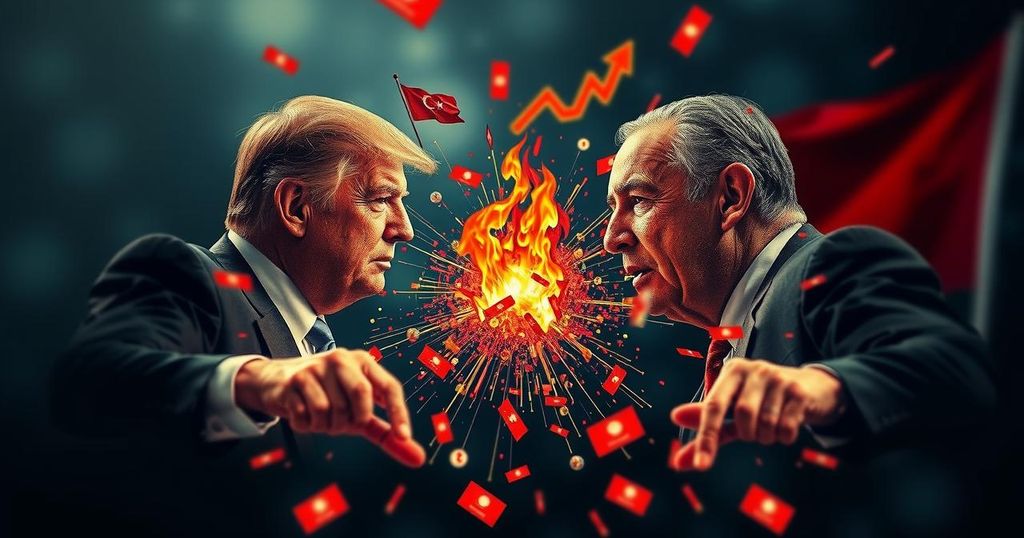Donald Trump’s re-election threatens to destabilize the global economy as imposing significant tariffs may adversely affect trade and economic growth. Analysts speculate that his policies could result in a decline in GDP for various countries and elevate the risk of a stronger US dollar, potentially harming emerging economies.
The election of Donald Trump as President of the United States has introduced significant uncertainty into the global economy. Following Election Day, he was declared the winner after successfully securing pivotal swing states, including Georgia, North Carolina, Pennsylvania, and Wisconsin. Trump’s victory appears to jeopardize decades of globalization efforts, as his anticipated policies could entail imposing high tariffs that may adversely affect global trade and economic stability. Trump’s proposal to enforce tariffs of at least 60 percent on Chinese imports, coupled with additional tariffs of 10 to 20 percent on other foreign goods, could elevate duties to historical highs reminiscent of the Great Depression. In contrast to his previous trade war, where tariffs affected $380 billion in imports, his current proposals could extend to goods valued at ten times that amount. Analysts are apprehensive that such actions will lead to decreased global consumer spending, primarily impacting foreign products, which would provoke retaliatory tariffs from other nations. According to Swiss bank UBS, the potential for a 60 percent tariff on Chinese goods and a 10 percent universal tariff could diminish global economic growth by one percentage point by 2026. Additional research from the London School of Economics forecasts specific GDP reductions in several countries due to Trump’s tariff policies, including a projected decrease of 0.68 percent in China’s GDP, 0.11 percent in the European Union’s GDP, and smaller losses in India, Indonesia, and Brazil. Compounding these trade barriers is the likelihood of a stronger US dollar. As tariffs contribute to increased inflation, the Federal Reserve may feel compelled to raise interest rates, further depreciating other countries’ currencies. This could exacerbate the challenges of repaying dollar-denominated debts for many nations. Furthermore, Trump’s interference with the Federal Reserve raises serious concerns regarding its independence, which could destabilize the credibility of the dollar and American bonds on a global scale. The potential consequences of Trump’s administration on the global economic landscape are alarming. Coupled with his unpredictable policy-making style, it remains uncertain how aggressively he will implement such tariff measures. Some believe that his extreme tariff threats may serve primarily as negotiating tactics; however, Trump’s public statements reflect a genuine advocacy for protectionist policies, indicating that these fears may be valid.
The potential implications of Donald Trump’s re-election on the global economy are a pressing concern for analysts and policymakers alike. Historically, globalization has facilitated economic growth by promoting trade and investment across borders; however, recent political trends reveal a growing skepticism towards free trade, which many believe has not benefited certain demographics equitably. The strength of Trump’s imposition of tariffs could dismantle years of economic progress, particularly as emerging economies grapple with the fallout from his trade strategies.
In summary, Donald Trump’s re-election poses serious challenges to the global economy through his proposals for substantial tariffs on imports, particularly from China. Such measures could reverse decades of globalization and lead to a decline in global economic growth, affecting many emerging economies adversely. Additionally, his actions may destabilize the US dollar‘s status and raise concerns about the independence of the Federal Reserve, indicating a precarious future for global financial stability.
Original Source: www.aljazeera.com






